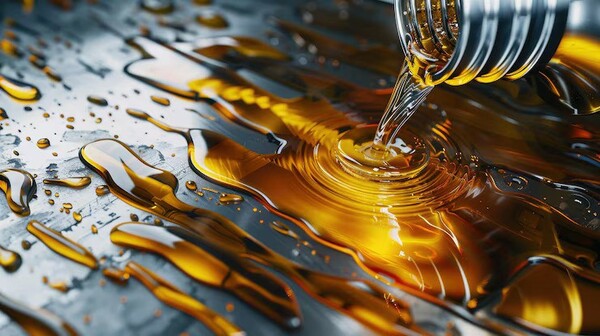Notifications
ALL BUSINESS
COMIDA
DIRECTORIES
ENTERTAINMENT
FINER THINGS
HEALTH
MARKETPLACE
MEMBER's ONLY
MONEY MATTER$
MOTIVATIONAL
NEWS & WEATHER
TECHNOLOGIA
TV NETWORKS
VIDEOS
VOTE USA 2026/2028
INVESTOR RELATIONS
COMING 2026 / 2027
ALL BUSINESS
COMIDA
DIRECTORIES
ENTERTAINMENT
FINER THINGS
HEALTH
MARKETPLACE
MEMBER's ONLY
MONEY MATTER$
MOTIVATIONAL
NEWS & WEATHER
TECHNOLOGIA
TV NETWORKS
VIDEOS
VOTE USA 2026/2028
INVESTOR RELATIONS
COMING 2026 / 2027
 Top Polymers -
Apr 21 -
Business -
viscosity improvers
Lubricant Additives Manufacturers
-
153 views -
0 Comments -
0 Likes -
0 Reviews
Top Polymers -
Apr 21 -
Business -
viscosity improvers
Lubricant Additives Manufacturers
-
153 views -
0 Comments -
0 Likes -
0 Reviews

When it comes to lubricating oils, maintaining optimal viscosity under different operating conditions is key to performance and equipment protection. One important factor in this equation is shear stability, and viscosity improvers (also known as viscosity index improvers or VIIs) play a significant role. But how exactly do viscosity improvers affect oil shear stability? Let’s break it down.
What Are Viscosity Improvers?
Viscosity improvers are polymeric additives that help maintain the oil’s viscosity across a broad range of temperatures. Without them, engine oil would become too thick at low temperatures and too thin at high temperatures, reducing its ability to lubricate effectively.
These additives expand when temperatures rise, increasing oil viscosity, and contract at lower temperatures, allowing for easier flow. This temperature-responsive behavior ensures consistent lubrication from startup to full operating temperature.
Understanding Oil Shear Stability
Shear stability refers to the oil’s ability to maintain its viscosity under mechanical stress or shearing forces. In high-speed or high-load machinery, the oil is subjected to intense mechanical forces that can break down the long-chain molecules of viscosity improvers. This leads to viscosity loss, reducing the oil’s effectiveness and putting mechanical components at risk.
A shear-stable oil maintains its viscosity longer, ensuring continued protection and performance.
How Viscosity Improvers Impact Shear Stability
Viscosity improvers differ in their shear stability properties based on their chemical structure and molecular weight. Here’s how they impact oil performance:
1. Polymer Structure Matters
Branched or comb-shaped polymers tend to offer better shear stability compared to straight-chain polymers. Their complex molecular structure makes them more resistant to breaking under mechanical stress.
2. High Shear, High Risk
In applications such as high-performance engines or heavy-duty industrial machinery, the oil experiences extreme shearing forces. If the viscosity improver lacks shear stability, it can degrade quickly—leading to reduced viscosity and increased engine wear.
3. Trade-Off Between Thickening and Durability
More efficient viscosity improvers thicken the oil effectively at high temperatures. However, higher molecular weight polymers may be more prone to shear degradation. It’s a delicate balance between performance and durability.
4. Low Shear Loss Equals Longer Oil Life
Oils formulated with high-quality, shear-stable viscosity improvers retain their viscosity longer. This not only improves performance but also extends drain intervals and reduces the frequency of oil changes.
Why It Matters for Your Machinery
Whether it’s an automotive engine, industrial gearbox, or hydraulic system, selecting a lubricant with high shear stability ensures consistent performance. Poor shear stability can lead to:
Reduced lubrication
Increased friction and heat
Accelerated component wear
Higher maintenance costs
For industries operating in extreme conditions, investing in oils with advanced viscosity improvers is a smart choice.
Final Thoughts
When choosing the right lubricant for your application, always consider products that have been tested for shear stability and sourced from trusted Lubricant Additives Manufacturers. These manufacturers understand the complex balance between viscosity control and durability, offering advanced solutions tailored to demanding industrial and automotive environments. By partnering with the right supplier, you ensure peak performance and long-term reliability for your machinery.
